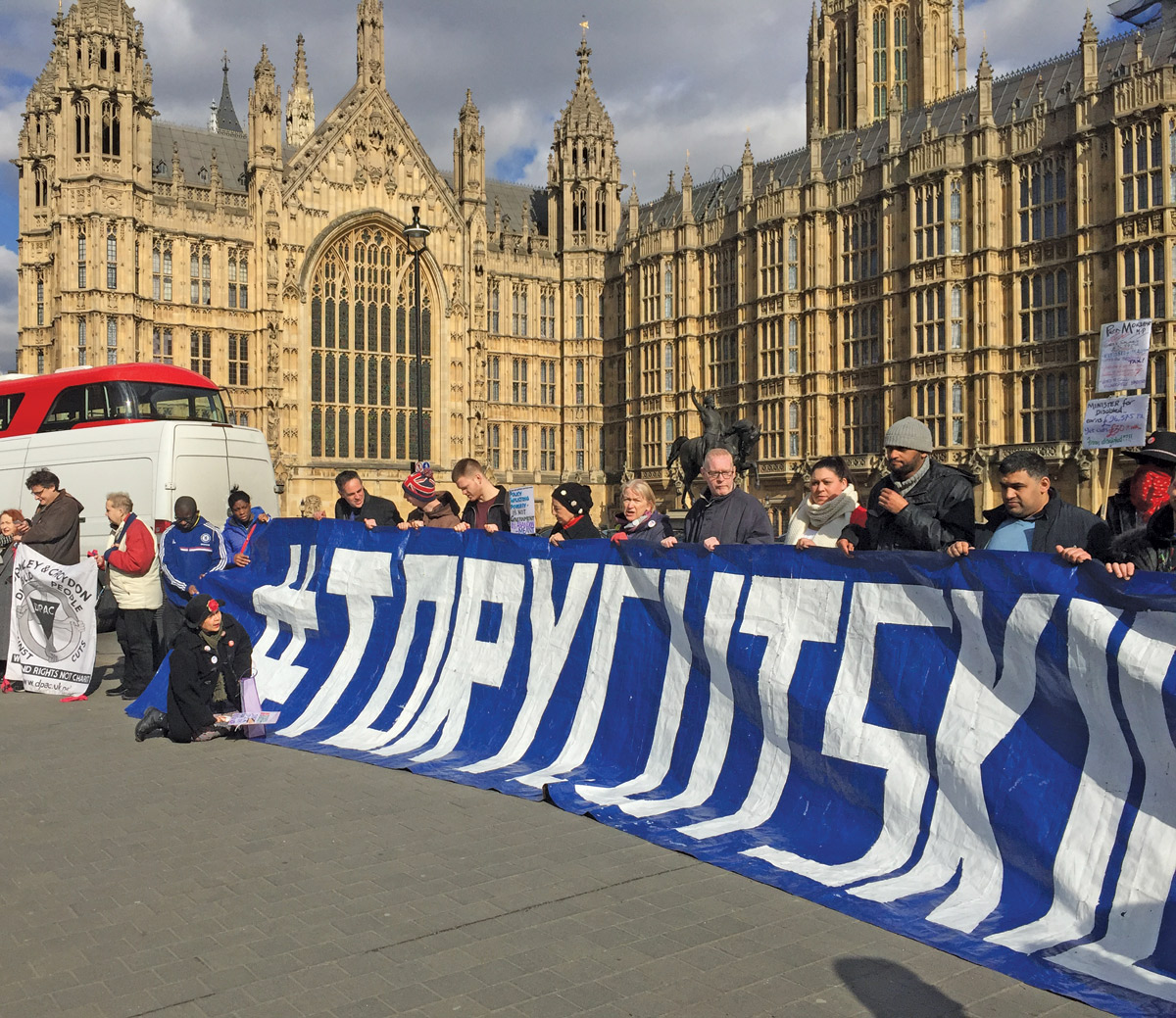
Sam Morden, South Tyne and Wearside Socialist Party
Mel Stride, Tory work and pensions minister, said in an interview with the Telegraph that “mental health culture” had “gone too far”, and that “work is good for mental health”. As someone who could best be described as ‘disablingly autistic’ and with other mental health issues, I find Stride’s comments a little rich.
This article is part of the bigoted Tory campaign in the lead-up to the election; in it, he discussed a plan to get 150,000 people with ‘mild’ conditions back into work through the use of even more draconian sanctions and requirements on already stretched and stressed Jobcentre workers and claimants. This includes abusing the “work from home” revolution to trap those with anxiety-related issues at home, where they can be used up like batteries for capitalism’s benefit. What is really needed is the consistent help and care that should be available as part of the NHS, if not for its chronic underfunding and privatisation initiatives.
Universal Credit
None of this comes in a vacuum, however. This is all part of an overhaul of how Universal Credit (UC) approaches disabled people and those who are long-term sick, set out by the Department for Work and Pensions back in 2023.
In the short term, the Work Capability Assessment will be significantly tightened; later this decade, it will be scrapped. Employment and Support Allowance and UC Limited Capacity for Work and Work-Related Activity (LCWRA) will then be replaced with a new UC health component that is dependent on eligibility for the significantly more exclusionary, discriminatory and bureaucratic Personal Independence Payment (PIP). Alongside this, the Limited Capacity for Work (LCW) group will be brought into the work-search-related sanctions and conditionality system. People most affected will be those with mobility impairments or those at risk of harming themselves and others if forced to engage in work-search activity.
Labour has – under pressure from Unite, Disabled People Against Cuts (DPAC), and other groups – hinted that it will stop the managed migration if, and only if, it is not already in process by the time Labour comes into office. Labour can’t be trusted even that far. Working-class people need our own party that will fight for what we need.
What is needed is a fully funded and democratically organised social security system that works alongside health and social care and unions to provide a good standard of living for all, regardless of capability for work.







